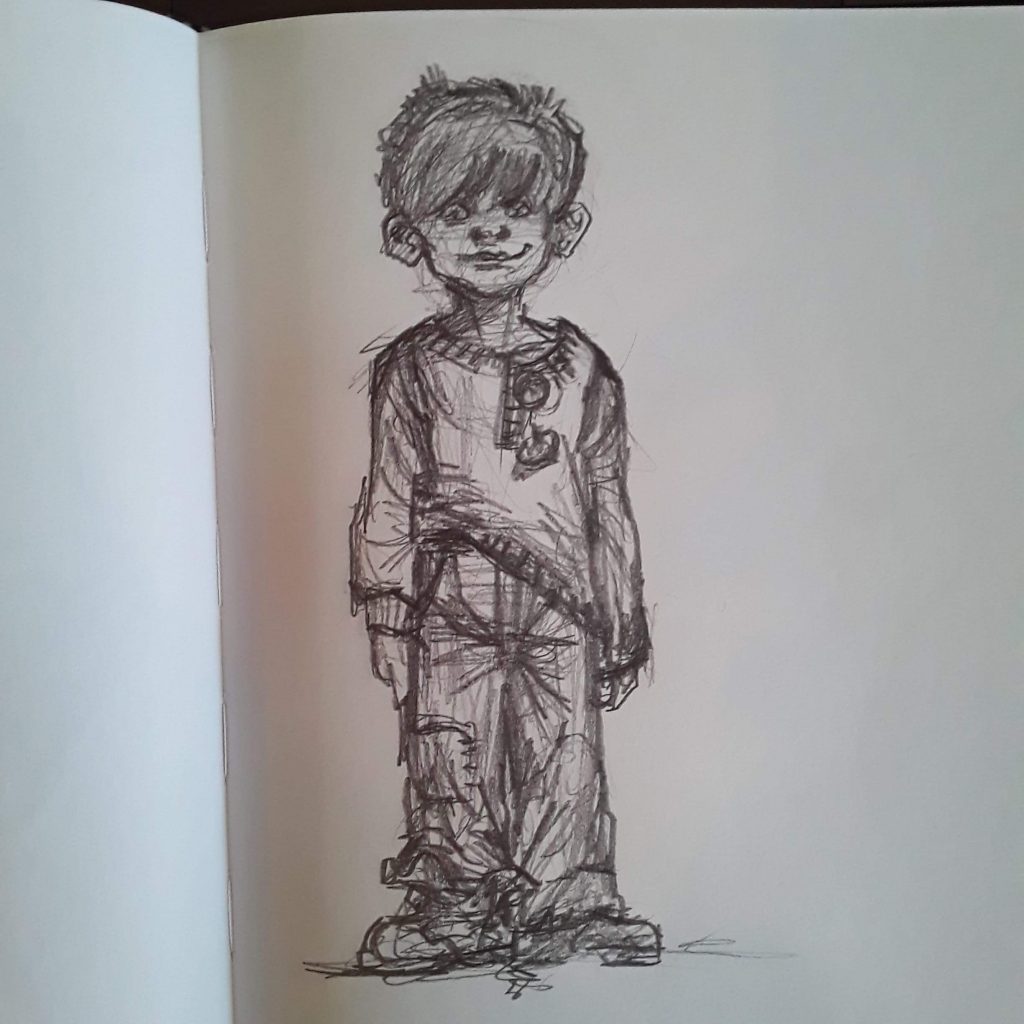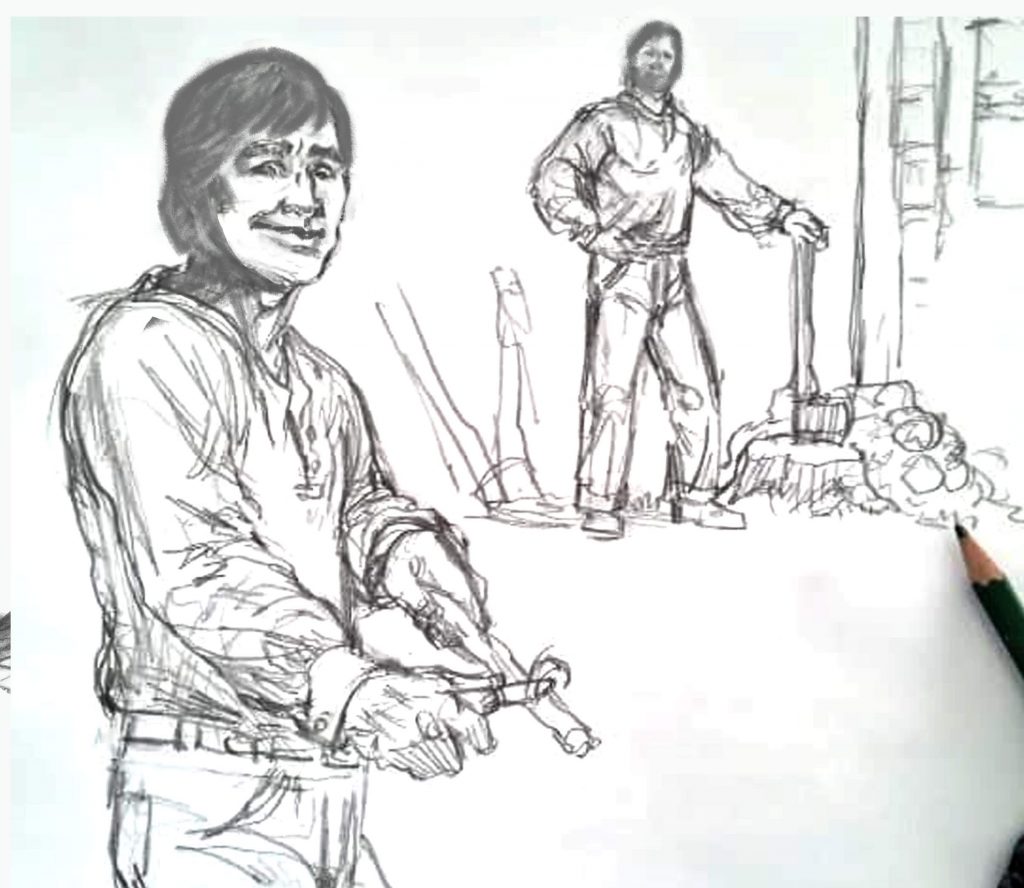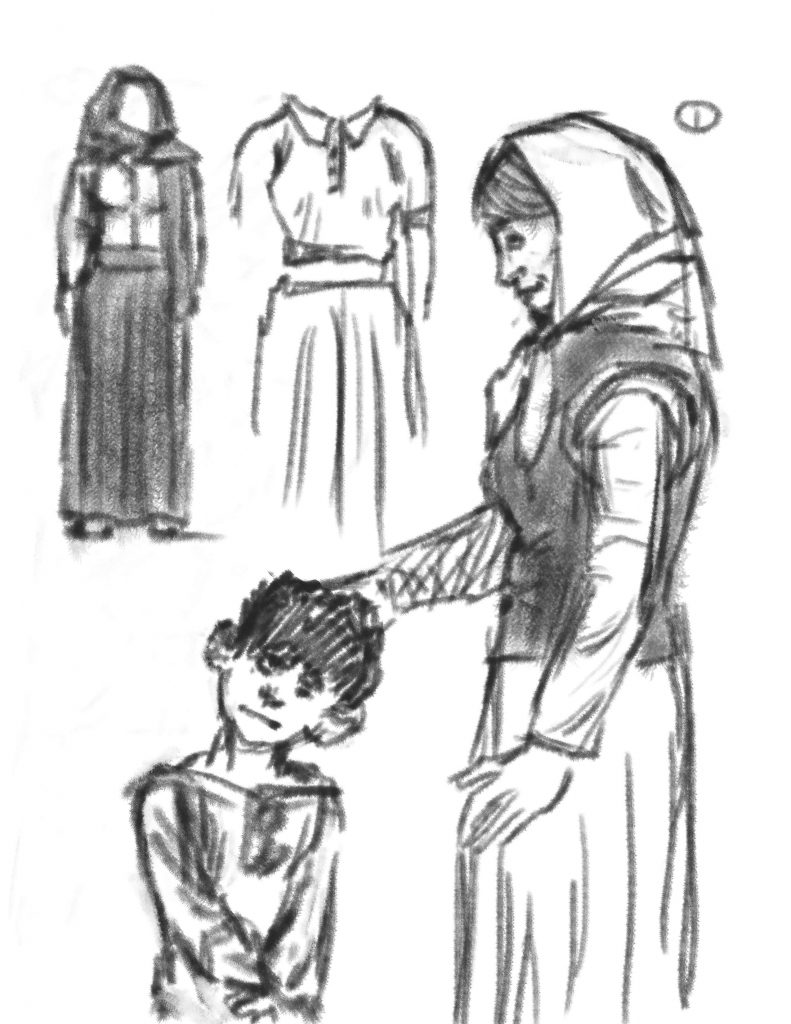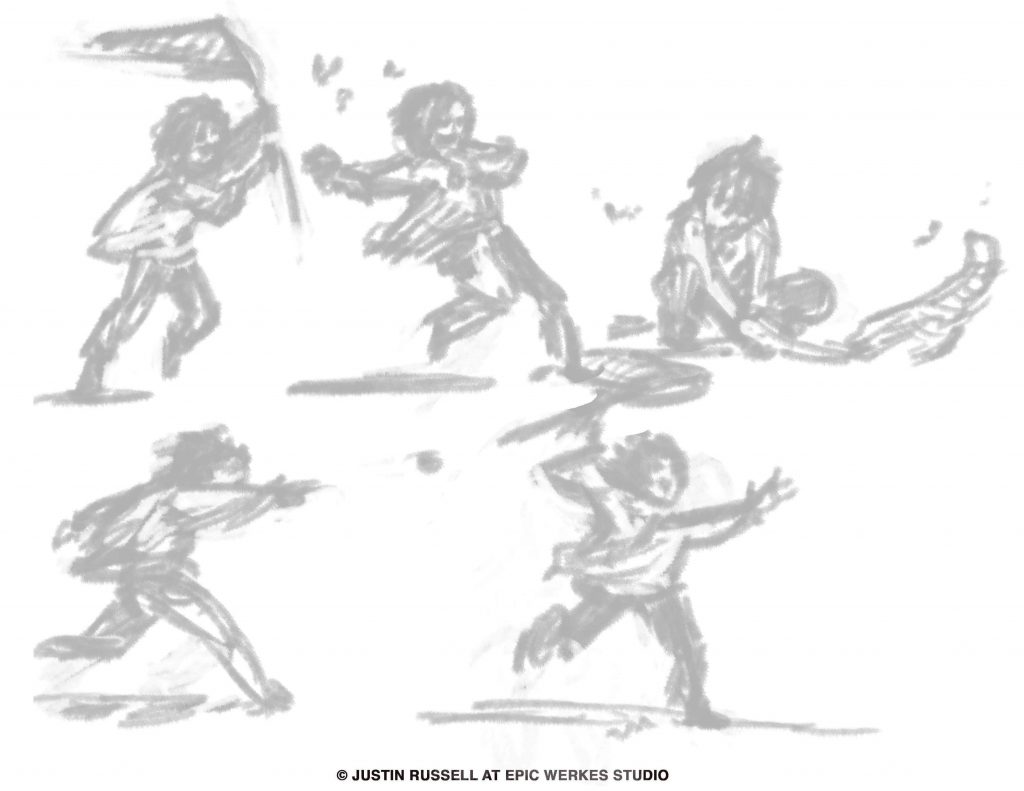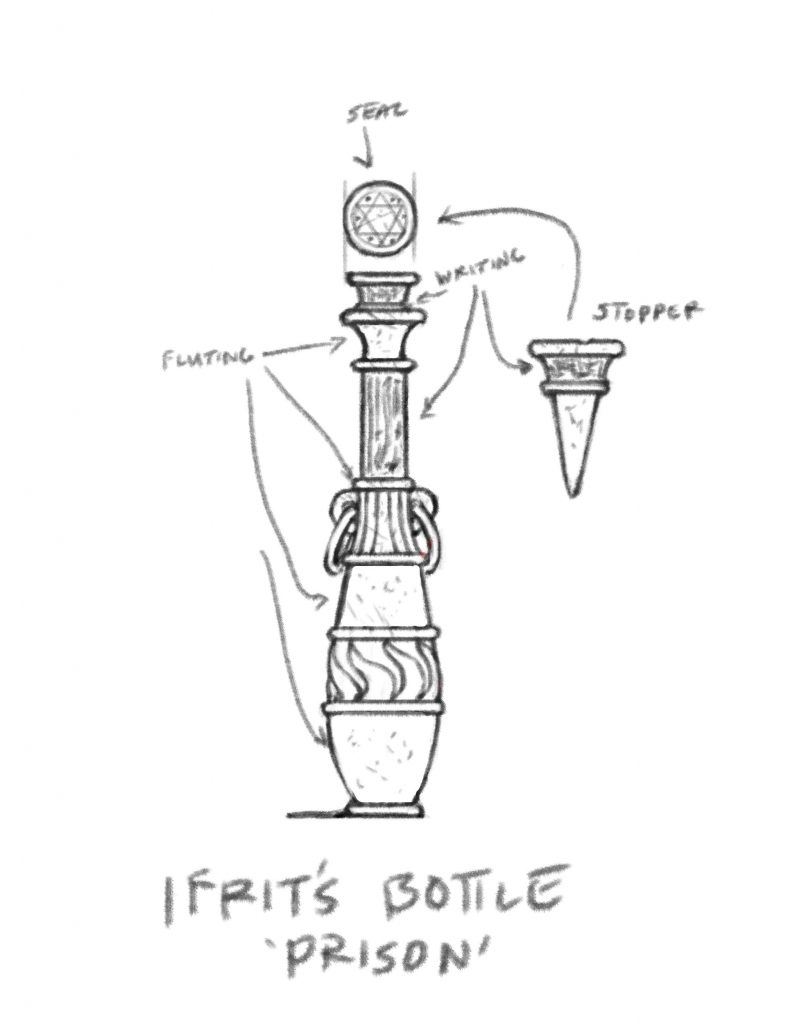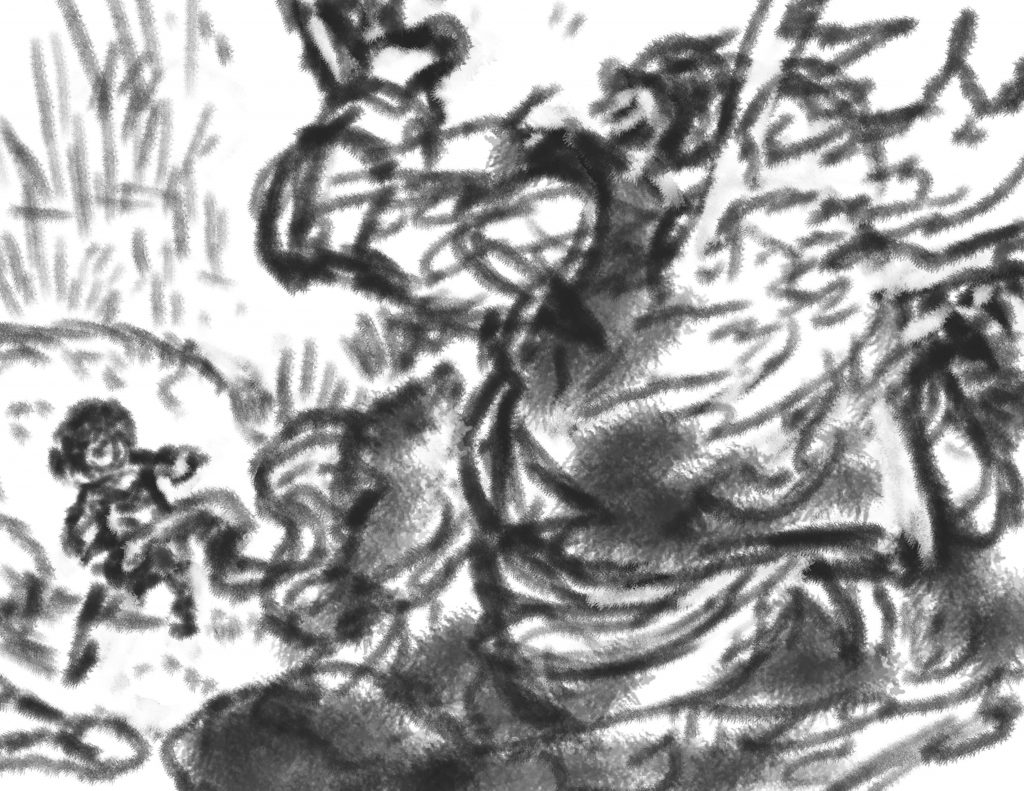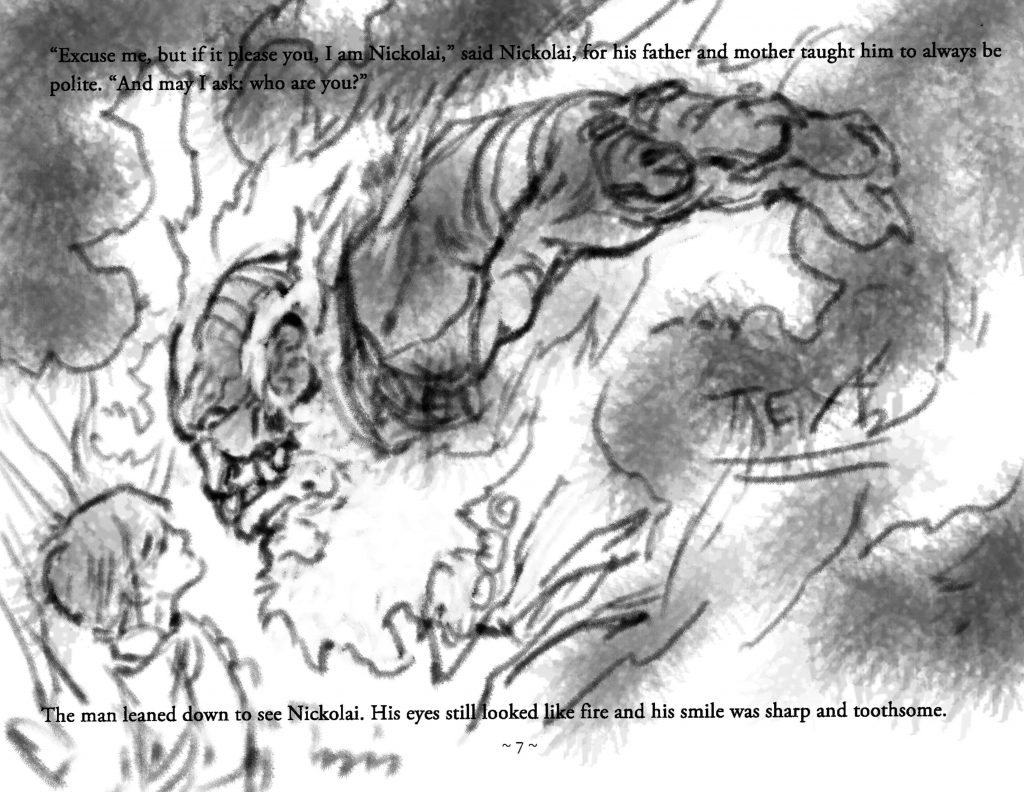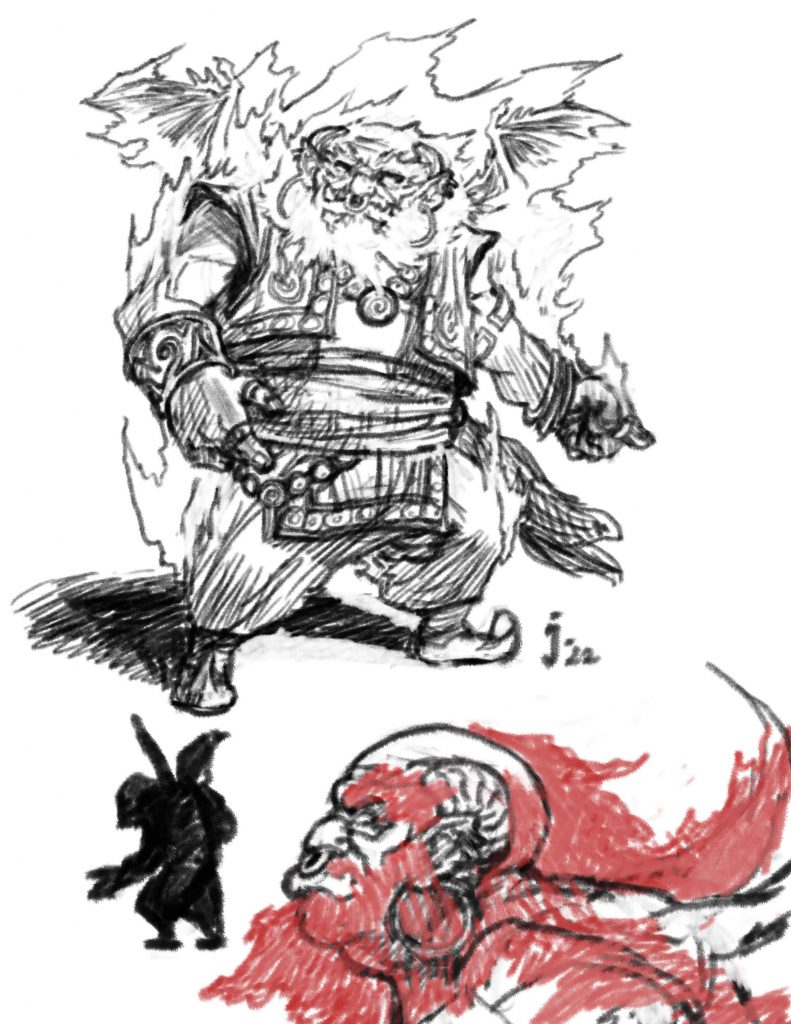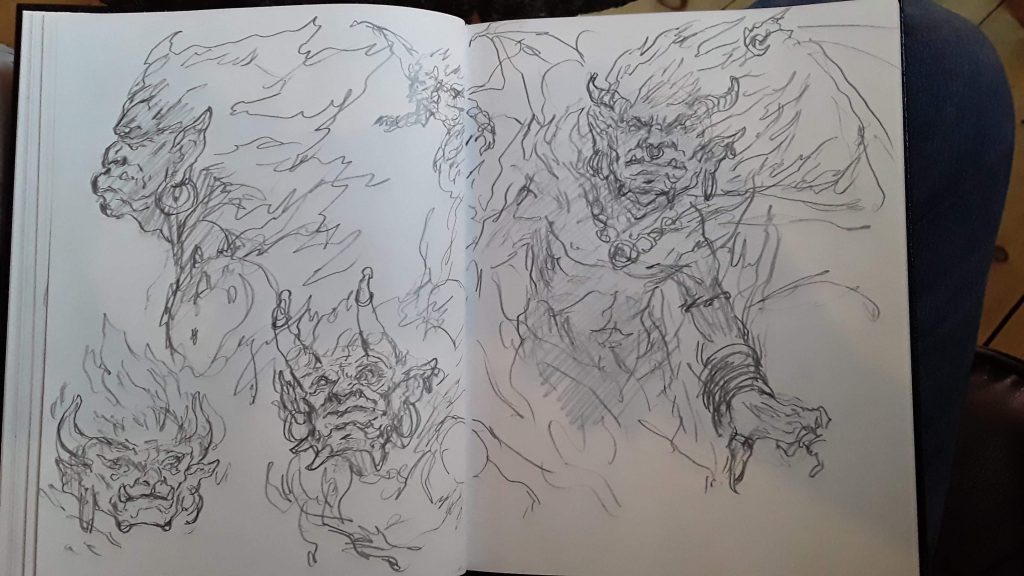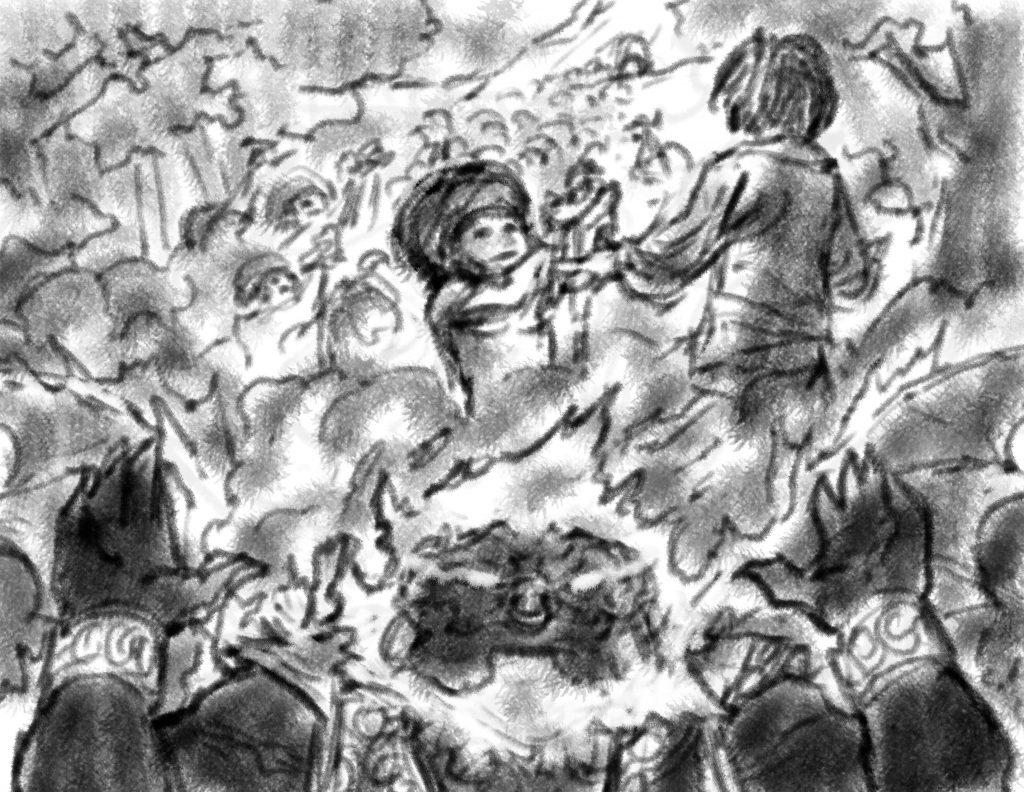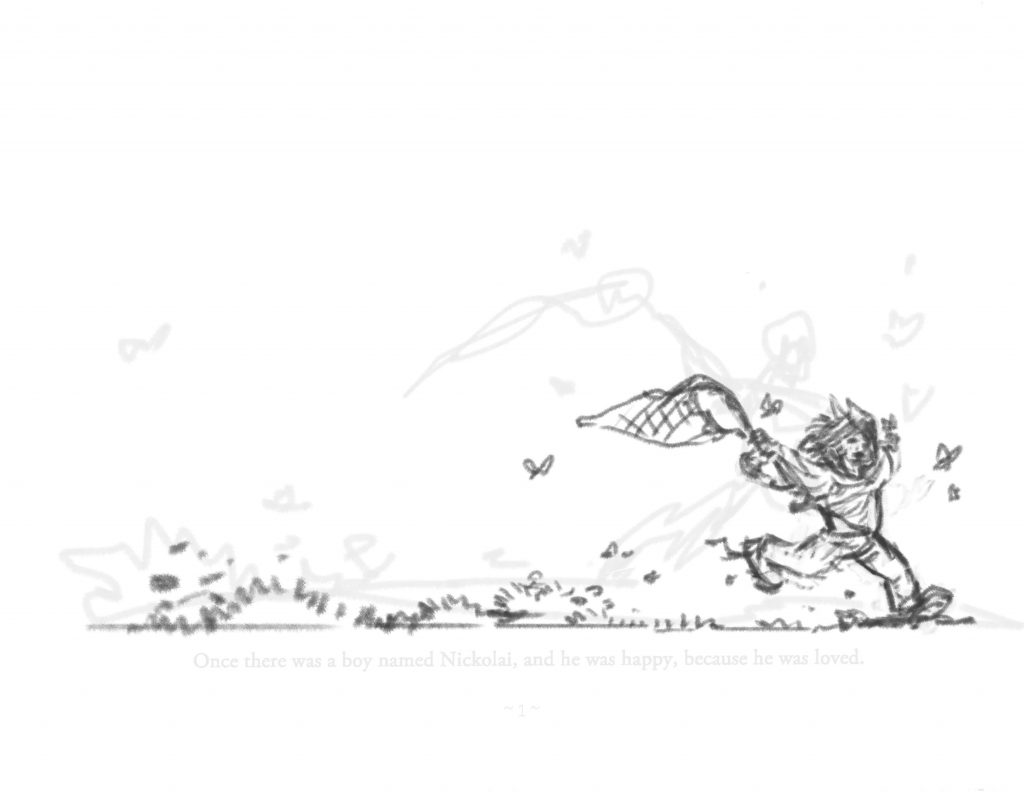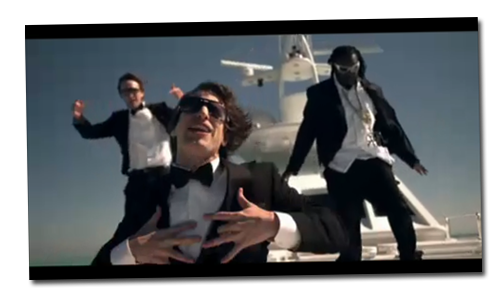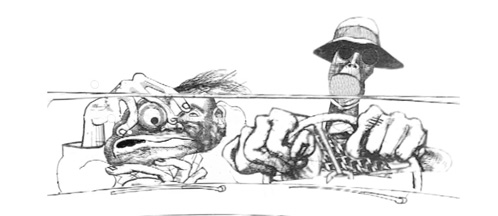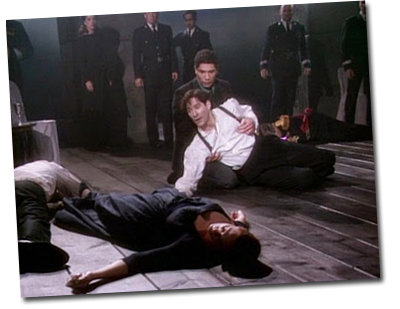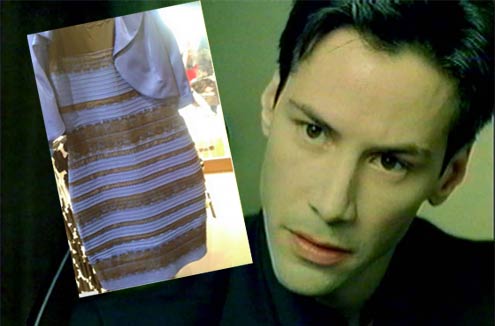Jack Silence, Chapter 1
I’m writing a kind of throwback “men’s adventure” novel, meant to be book 1 in a series of however many I’ve got in me. It’s sort of THE DESTROYER/Remo-and-Chiun meets Dr. Strange, meets the old 1970s SHAZAM! show, based on the now-public-domain weird fiction of Algernon Blackwell’s “John Silence” stories.
This is the first chapter. Hope you like.
1. HIS NAME WAS JACK SILENCE AND-
His name was Jack Silence and he was in his underwear, standing ankle deep in snow and yelling at a dead man.
This would be strange by itself, but stranger still was the fact that the dead man was yelling back at him.
“I’m ON VACATION!” Jack shouted.
“YOU ARE BEING CALLED!!” the dead man insisted.
“VACATION!”
“CALLED!”
Strange, however, was a relative term for the Silence family, which had trafficked in matters strange and occult for generations. Jack was the current generation. The ghost he was screaming at was three generations back.
“Look. I’m here to clear out this lake, then I have the week off. That was agreed.”
“Plans have changed! Circumstances arisen!”
“No! Just…No! Tell them to send someone else. Please take this in the kindest way possible, Grandfather, and understand that I say it with love: fuck off and leave me alone. I’m here for the voy-da-doy..”
“Vodyanoy.”
“Whatever. I’m here to kill this thing, then I’m on vacation. I deserve a vacation. I’m up and down the Eastern seaboard tracking down every gremlin and bugaboo for the last three months. I’m tired. Tell that silvery faced tyrant to go suck his own–”
“I cannot and I shall not! Further, your use of gutter-diction is troublesome. I should think I taught you better. It pains my heart, I regretfully inform you.”
“What heart? You don’t even breathe. You’re a goddamned specter.”
Jack Silence turned to face the shimmering form of his great grandfather, which hung in the air before him. Through the translucent folds of his tweedy ethereal jacket, Jack could see the cold, beautiful freshwater of Eagle Lake that stretched as far out as the eye could see.
The crisp Maine air was clean and smelled of pine. Behind Jack was a large RV, some thirty feet long. It was tan with brown accents, and looked to be a vintage 1979 Chieftain Winnegbago. A battered, faded license plate read SKD-BLDNR.
What would seem odd for anyone watching, was that there was no access road to this area, and no apparent tire tracks behind the vehicle.
“I am an apparition, yes. And your forebear and namesake, which would behoove you to treat me with the requisite respect one should expect from such a station, young Jack. I am Doctor John Silence, formerly physician extraordinary, and now ghostly keeper of the sacred Accord! To which you, as the living Silence, are sworn. Also, there is little need to blaspheme. Further, you know how I feel about your incessant profanity.”
“Yes. It is my understanding that you dislike such verbal fuckery.”
“Really, Jack? Now. You have a task to perform. Which involves, I should add, your ability to “not breathe.” As I recall, that was your first lesson. You have been well trained in it.”
Jack Silence arched an eyebrow.
“As you recall. I recall it, you can bet your ghost-dick on that. I was just a kid, for crying out loud. You let her hold me underwater.”
“You survived.”
“Well, it was a shitty way to learn.”
“Comparisons to matters fecal aside, learn you did. And here you are.”
Jack considered this. In answer, he raised a silent middle finger to the spectral form of his ancestor.
The ghost of Dr. John Silence wore a sour expression, as if he had just eaten an ectoplasmic lemon.
“Ahem. Perform your task. And then! Then we must be off to the port of New Haven. This is… a pressing matter. A young woman’s life hangs in the balance.” The ghost folded his arms, which made them slightly more opaque where they piled up in layers.
“I’ll take care of this vadoodie,” Jack said.
“Vodyanoy.”
“Yeah, that. But then, I’m off the clock. I’m not going to Connecticut.”
“We shall have words when you return. Now, attend to the matter at hand,” said the spirit of Dr. John Silence.
Jack Silence looked to be in his mid to late twenties, stood five-foot-ten inches high and was of slim build, but muscular. He had long, straight dark hair that went a bit past his shoulder. If you had to make the call, it would be more accurate to say he was more pretty than handsome, with a clean shaven face, high cheekbones. He was neither expressly short nor tall. Not movie-star good looking, but better than most. Average to slightly-above in most every way, at first glance.
The only thing that might make him stand out in a crowd were his odd blue eyes. They were a bright ice blue near the black of the pupil, but the outer ring was a darker navy color that acted in a way to draw attention to the sky-blue at the center.
In general, he didn’t appear imposing or a looming physical threat. But especially now– standing in a pair of boxer shorts, barefoot and pale in the snow, in front of a big camper vehicle by a lake. Appearances, however, would be deceiving. If there was anyone around to stand next to him besides a ghost, they’d be suffering hypothermia in minutes. Jack wasn’t shivering at all. He didn’t even have goose-flesh.
Jack Silence was capable of things very few other humans could ever come close to doing. Things they might not even dream of being able to do. Since childhood, he had been rigorously taught secrets kept long hidden from most of humanity. Secrets that unlocked a world of physical and mental potential, but also opened up worlds of mystic danger.
“Now attend to the matter at hand,” Jack said in a mimicking, high pitched, sing-song voice, which irritated the ghost to no end.
But there was nothing to be done for it, for in the next moment, Jack launched himself in a clean and elegant dive into the icy water. It barely left a ripple on the surface. Above, the ghostly form of his great-grandfather smiled in begrudging approval.
“Good form, boy,” the ghost said to no one at all and nodded in approval. A proud smile crossed his face. “Good form.”
Upon being submerged, Jack closed his eyes and willed his internal body temperature to continue to fall. He had already dropped it several degrees and slowed his heart rate and breathing, in preparation. He was hopeful to be able to last an hour on the single breath he had taken as he leapt. That should be more than enough.
This wasn’t magic, although Jack could do some of that, if need be. The ability to adjust to environments and move freely was an art and skill that humanity had largely abandoned and lost along the way to civilization. It was a skill that predated language. Jack had learned it–along with many other lessons– in a special place called the Challenge Parlor. A hateful place.
As he pointed his arms downward and undulated his hips and legs, he propelled himself faster into the depths, keeping his motions as conserved as they needed to be. No wasted effort, no wasted oxygen.
Jack allowed himself to relax, expanding his senses in all directions. He opened his eyes and relaxed the muscles behind them, concentrating on shifting his visual perception to account for the lensing effect of the water which blurred his vision.
As he did, the lake floor snapped from a watercolor, impressionist blur into sharp focus, with each rock and pebble in high contrast, as surely as it would have had he donned goggles. He had more than enough air, from the one single gulp he had taken, to last for a long, long while.
This was, he knew, an adaptation that most mammals possessed, but humans simply panicked and thrashed about when thrust into an alien environment.
Jack Silence enjoyed this moment, even though his mind was alight with the heightened awareness that fear brings. He was now in a scenario where a mistake meant death. And he was hunting a thing that lived to kill.
Ah! Your fear. I smell it! Fear is good. Fear is healthy. Fear is life’s fuel, child. If you fear, it means you’re alive. Panic, though, boy? Panic is the enemy. If you panic it means you will soon be dead.
The long ago words of the tutor his great grandfather had brought to the Challenge Parlor echoed in his mind, from when he was taught the lost art of long distance diving. The heavy Russian accent. The rough, old, strong calloused hands holding his head down. They smelled of onions. He was eight, then. It had almost killed him, but he came out the Parlor stronger and more capable. And angry.
Seals have lungs, boy. Otters have lungs. Whales have lungs. You have lungs. Be like them. It’s not something you learn. It’s something you’ve forgotten. Toss a newborn baby into the water. His windpipe will close up. His spleen will push blood, rich with air, into the body. He spent nine months diving, he still knows how. I’m here to teach you to remember. And if you don’t, I’ll collect your bones for my soup.
Jack Silence remembered. He had panicked, there in the Challenge Parlor, with the cruel and wise old witch, those years ago, and almost paid for it with his life. But he learned there never to panic again.
Free from panic, he allowed reflex to take over and do its job: his organs pulled the blood greedily inward from his extremities where it was not needed, his veins constricted and his heart slowed even further, reducing the burn rate of oxygen. He was one with the water and the water was one with him. It felt like flying. It felt free.
Back down the chain, if you go far enough, you all came out of the water. It’s why your eyes are made of jelly and need to be wet to see. You’re a distant cousin to a fish, child.
Jack Silence did not swim like a fish. He swam like a seal or a dolphin; he used his whole body, not just his arms and legs.
And now he was far into the middle of Eagle Lake, the largest body of fresh water in the Acadia wilderness of Maine. High above him, sitting on top of four hundred acres of water, was a crust of ice that threw the sunlight in hazy waves below. He passed the silvery body of an unblinking landlocked salmon, zipping by it so fast the fish barely had time to twitch and dart away before he was already gone. If Jack had intended for it to be his prey, it would have already been dead. But Jack was hunting something else in the frigid waters of this lake. Something that had been collecting prey of its own.
He followed the contours of the lake bed down deeper, feeling for shifts in temperature where the water ran colder. His eyes were very nearly all pupil now, and his frame waved in ripples that pushed him effortlessly along. The pressure of the incredible weight of water above and around him pushed in. Within his body, his systems squeezed back, pressurizing themselves in perfect harmony. He did not think of doing it, he simply let it happen.
Relaxed. Flow. Movement.
Only as much is needed, and not a bit more. His mind was afraid, because this was deadly business, but he would not allow fear to give way to panic. Again, in memory, the rough old lady’s voice echoed:
Use the fear. Don’t let it use you. Stop thinking in words, boy. Feel!
Jack let his thoughts go wordless and simply felt. Felt the temperature around him not as a sensation called “cold” but as the differences that separated that coldness; here more than there, and he followed. His sense of body awareness was now total and complete; every square inch of his skin its own antenna, taking in information and telling him what he needed to know.
It had been a full six minutes now, but he was not counting time by a clock. His whole being was aware of how much energy, how much life-giving oxygen he had smuggled in from the airy world above he had to supply it.
It was another nine minutes of searching before he saw them.
Corpses.
Three of them. There was what had once been the living body of a fit, middle aged woman, who still wore the tattered remnants of a jogging vest. Next there was what might have been an older man with an outdoorsman’s coat floating up at its unzipped sides. And then the last one, that nearly made Jack gulp in a lungful of water. It was a child.
A boy. One eye had been mostly pecked clean by fish. Tattered bits remained, suspended by small lines of tissue. The other eye stared lifelessly in one direction, never to move again.
All three were set up, posed as sitting around the crude approximation of a table made from a sizable flat boulder. Their rotting, bloated flesh was gray-blue and mottled and the boy’s short hair floated gently in a corona about his head, along with the invisible currents of moving water. Each of their stomachs had been slashed open and panels of skin swayed softly in bloodless flaps. A collection of large stones were jammed inside the open cavities, to keep them all in place.
A loose coil of intestine hung lazily from the older man’s abdomen, waving silently. Jack took in the scene: it appeared to be a macabre tea-party, far under the surface of the lake. Grandfather had told him to expect such a thing. And what to look for. And there it was.
On the rock table there rested a shiny porcelain teapot in front of each of the bodies.
Jack Silence glided through the water and reached out for the pot in front of the older man. He removed the lid and a single, iridescent bubble emerged, tentatively at first but then rapidly shot upwards before popping and disappearing. Next was the pot in front of the woman. Her lifeless torso rocked gently back and forth with the water in a mockery of the animation of life. He took the top of the pot and discarded it; it slowly sank to rest on the rock table with a muted clink. Another bubble, this one tinged with ribbons of glowing blue, rushed out and up, becoming nothing at all soon in its ascent. Then the final pot. The boy.
A large bubble, glowing brightly, flew from the pot. It stopped, however, in front of Jack’s face for a moment. It pulsed, growing larger then returning to its original size and Jack stared into the light. It was achingly beautiful.
Jack waved at the bubble, pointing upwards. The bubble hovered near the partly eaten face of the dead child and its color shifted to a mournful yellow. Then it rose slowly, seemingly not wanting to leave. And then it was gone.
Their souls. Their souls were trapped there, and now freed, Jack Silence thought.
It was then he heard the thundering yowl. Sound travels farther and faster through water than in air. This was a sound of anger and fury. He felt a great pressure and a sense of displacement in the water. Something far away was barrelling toward him. Something furious. Something deadly.
Jack pushed back his anger and his fear, focusing on his heart. He willed it to pump, then go silent. He waited.
Then he saw it.Even in the murky depths there was no mistaking the fact: it was a horror.
It was the last thing that these three poor souls had seen, from when they were still enmeshed in their bodies, Jack realized. Its head was like a frog and a man all at once, with a thick, green beard of what seemed like both kelp and hair. It’s face was full of ancient hate. Its body was an abomination of angles and forms that suggested the shape of a person, but rudely. And it was murderously angry.
Large, lamplike yellow eyes, glowing eyes, with pinprick pupils focused in on Jack and the thing’s mouth opened wide, revealing rows of sharp triangle teeth. The sides of its neck flared with blue green gills. The scream and cry sounded again, filling the whole of the lake. This thing’s treasures had been taken. It was nothing but fury. Jack Silence extended his hands and turned them. He flipped the Voydyanoy a double bird; two upraised middle fingers. Then he turned, quick as a fish, and swam for his life.
Behind him, the creature gave chase.
Jack’s mind was without words. There was no need for them. Words merely got in the way. There was just intention, just action. The separate muscles of his body moved with a unified purpose. He shot through the water like a missile. But the thing, the awful thing, the Vodyanoy, moved even faster. He had disturbed its collection of souls and it wanted revenge. It was gaining on him.
Jack was burning oxygen now at a rapid rate. If he thought in words at the moment, the words would describe how his heart and liver pulled the lactic acid from his blood, working overtime to convert it to a chemical called pyruvate, to fuel his legs and core and arms with power to continue. But there were no words, there was just the process, just the doing, and in the doing, Jack Silence gained speed.
It was not fast enough.
—
The ghost of Dr. John Silence, physician extraordinary, hovered uncertainly by the water’s edge. He reached into a pocket and withdrew the semi-transparent disc of an otherworldly ornate pocket watch, made from the same ghostly material he was comprised of.
He glanced at it. Twenty minutes had passed now. He knew Jack was up to the task, but still. Twenty minutes. Jack, for all the skills he was taught, was still only flesh and blood and bone. It was a long time.
Then he both heard and felt the scream. It sounded through the ether and ripped out at frequencies that humans might never hear. Birds seemed aware of it, though. A collection of crows lifted off from bare branches and disappeared into the gray sky.
Under the lake’s placid surface, Jack fled. Behind him, the creature born of water and malice and foul spirit, given flesh in the world and called a Voydyanoy, rushed at him, cutting through the lake’s waters like a deadly knife. Now ten feet. Now five. Now within grabbing distance. Jack would not make it to the shore in time before the thing was on him.
And then–
Jack was at the surface, ten feet from the shore, still accelerating. He breached the water with a splash-spray and vaulted like a dolphin, turning in the air.
Behind him, the thing erupted from the water, with its hands curled into claws and its terrible mouth open impossibly wide. Jack corkscrewed his body at the height of the jump, the weightless instant where the force of gravity just began to win out over the velocity of his ascent.
He brought his arm around, swinging it in an arc with his first and second fingers out straight and rigid, and plunged them into one of the large yellow eyes of the creature as it snatched him with long, oddly angled arms in a vise grip.
“Well, that’s one way to do it, I suppose,” muttered the semi-transparent form of the ghostly Dr. John Silence, hovering by the lake’s edge.
Jack and the vodyanoi fell together into the water. The thing was shrieking in pain and thrashing as they landed together with a smack and a splash like a bellyflopping diver, then sunk beneath the surface.
A roiling froth of bubbles and a terrible area of what appeared to be black ink floated up to the surface. Moments passed.
Then there was Jack’s head, gasping for air. Then the rest of him inch by inch, rising above the water as he made his way to the shore with deliberate steps. He was dragging the twitching, sickly green-blue body of the nude, man-like thing behind him.
“Is this where I would hold up a card with my judges’ score?” the ghost called to him. “I shan’t think it would be a high number, I’m afraid.”
“Har har. You’re a real cut-up.”
“It still lives, you know.”
“Yeah, not for much longer, though,” Jack grunted, yanking the vodyanoi up out of the water and tumbling its form into the snow. One of its gills was ripped clean off, exposing striated flesh which oozed and dripped black ichor. The other hung in a tattered flap, like a ripped sheet. Neither were functioning. It opened and closed its mouth, full of vomerine teeth, impotently, like a puckering fish out water.
“Hey. Fucknuts,” Jack said to it. “You see how this feels?”
Black fluid, like pen ink, rushed from the creature’s mouth.
“Yeah. Not nice, right? This is what those poor bastards felt when you dragged them under the lake and trapped their spirits for your lunatic little tea-party.”
“Glup,” the thing managed to vocalize through a mouth of whatever passed for blood, putting up an outstretched arm to Jack, showing long fingers, joined with a web of mucus-like flesh between them.
“You’re not even supposed to be here, you know that?”
“gl…Glup,” the frog-man belched pathetically, gasping through jet-black fluid. Its glowing eyes were growing dim.
“Yeah, yeah. Glup. Glub-glubity-glup. Choke on it, cockskin. You killed a kid, you froggy shitstick, snot-covered ballsack,” Jack yelled, standing over the vodyanoi. He delivered a kick to its wounded side.
The voydyanoi, with its gills ripped from its neck, was hitching for breath. It exploded a spray of mucus and thin black water from its mouth, covering Jack’s nearly naked body in a fine mist. He wiped away at his eyes.
“Oh, you absolute bag of dickmeat. Now I’m just going to watch you die on your own, howzabout that?”
“Jack, ours is not to punish, but just to enforce the Accord,” Dr. John Silence’s ghost offered, floating now close behind him.
“Yeah, I know.”
“So enforce it. End it now,” the ghost said gently.
“There was…there was a boy, grandfather. A child,” Jack said, turning to him. His voice broke and wavered as he said it. He was now shivering.
At his feet, the creature pathetically clawed at the air, its ruined gill-lungs oozing the ink-like, watery blood from its wounds and eye socket into the snow.
“I know, son,” the doctor said softly. “I know.”
He placed a ghostly hand on the shoulder of his great grandson. It hovered by his skin, but could not be felt.
Jack Silence leaned down.
“Glup?” the monster burbled.
“Yeah. Tough titty, said the kitty. Them’s the breaks.”
He killed it quickly and without ceremony.
“I gotta towel this goo off of me. Ew. It smells like fish and dogshit.”
—
Inside the camper, now dressed and with a cup of coffee, Jack Silence was adamant.
“I am not driving this thing to Connecticut, grandfather! I just unfolded it, fer chrissakes. You promised me that I was off duty for a week, and I just got here. Connecticut is like, seven hours away. We’re not the only marshals, you know. Surter’s got an avatar there. And that creepy old witch, she’s got people. This doesn’t need me. You can piss up a ghost rope. Go yell “boo” at someone, rattle some chains, or whatever it is you do when you disappear. Leave me alone.”
The spirit was not budging.
“It is of singular importance that you do so! The Arcadian has made his will known to me. I have been granted a Vision. You have been Called. It is your duty as a Silence to heed. Never in all my years have I dealt with such obstreperous impertinence from one so callow. There is a matter of absorbing concern. A young woman’s fate hangs in the balance. Would you sacrifice the life of an innocent to better enjoy your time on holiday? Is that the sort of blackguard you would purport to be? Certainly the string of obscenities that leave your mouth would attest to such a low character.”
At that, Jack took a deep breath in. Fuck.
His great grandfather was right, of course. It was irksome. He had been right about the vodyanoi; Jack was not meant to fight it under the water, where it was strongest. The plan was to free the trapped souls and lure it onto the land, where it would be weaker and easier to kill.
He had wasted a precious moment in taunting the thing, giving it his twin middle fingers before leading it on the chase. That was enough to allow it to catch him, just before reaching shore. The job was still done, and it had felt satisfying to take its eye and strip its gills to the bone, but… He had gotten the slime of it all over his body when it grabbed him, and there was that death-sneeze that got in his eyes and on his chest and now he felt sort of queasy and a little bit off. There was a buzzing in his head.
Grandfather Silence had warned him of the thing being coated in a kind of under-the-lillypad style gelatin with odd properties.
Vodynoi, or Vodnicks, as they were sometimes called, used a crude kind of psychic prowess to peer into the minds of their victims and freeze them in place, close to the shores of where they hunted. Then they dragged them below to act as company for them and their lonely existence. In the ways of the Old Magic, the kind that had been banished from the world long ago, they collected souls in teapots, and kept them until the bodies became too rotted to pretend it was a party anymore. Then they refreshed their party with new guests. The lakes and waters of Russia used to be lousy with them, only a few hundred years back, before the Accord. The Accord that the Silence family, among others, was sworn to uphold. Now only a few such creatures cropped up, here and there. Stragglers who had evaded the Great Leaving.
Some of that residue that he had touched, or perhaps its final spray seemed to be giving him a contact high of sorts, imparting a bit of the Vodnick’s psychic ability to him. It was unpleasant. Like noise in the background. He felt the frantic thoughts of a squirrel outside the van crowd into his mind, all twitchy and vigilant. He blinked and it was gone.
It would no doubt pass, but still. Sloppier than it needed to be. He’d never tell Grandfather that, though. Just another maddening “I told you so” for the pile, if he did.
And now this. Enjoying time off wasn’t ever going to happen now. Or any real vacation. Not with the spirit of his long-dead forefather constantly sending him chasing after mystic disturbances. They didn’t happen on a set schedule. He found the spot in his forehead, about two inches in, and pushed with his mind, as his great grandfather had taught him to do so long ago. His body temperature began to rise. He knew he would have to go, but he wasn’t going to give the old man the satisfaction of agreeing without at least a little more argument.
“Never in all your years?”
“Yes. All of them.”
Jack Silence pushed a hand through his wet, long black hair, smoothing it back against his head.
“All your years ended a long time ago, you ghostly dick. I swear, it’s never a moment’s rest for the living.” he muttered. “Fine. We’re going to stupid Connecticut. Tell me more about what you know with this girl in trouble.”
“That’s my lad.”
“Whoop de-doo.”
